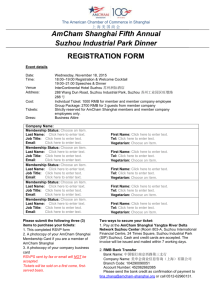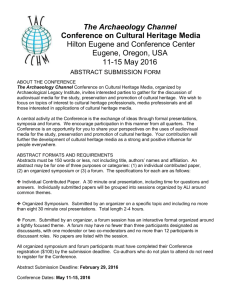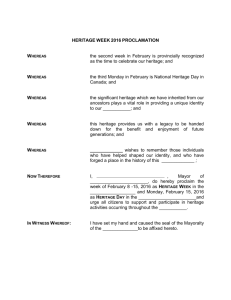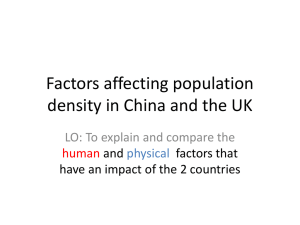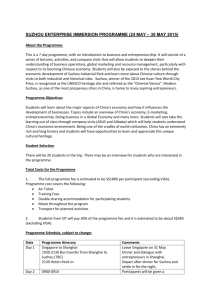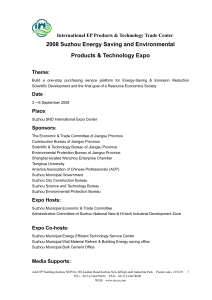SHANGHAI REPORT Cultural Heritage and Urban Regeneration By
advertisement
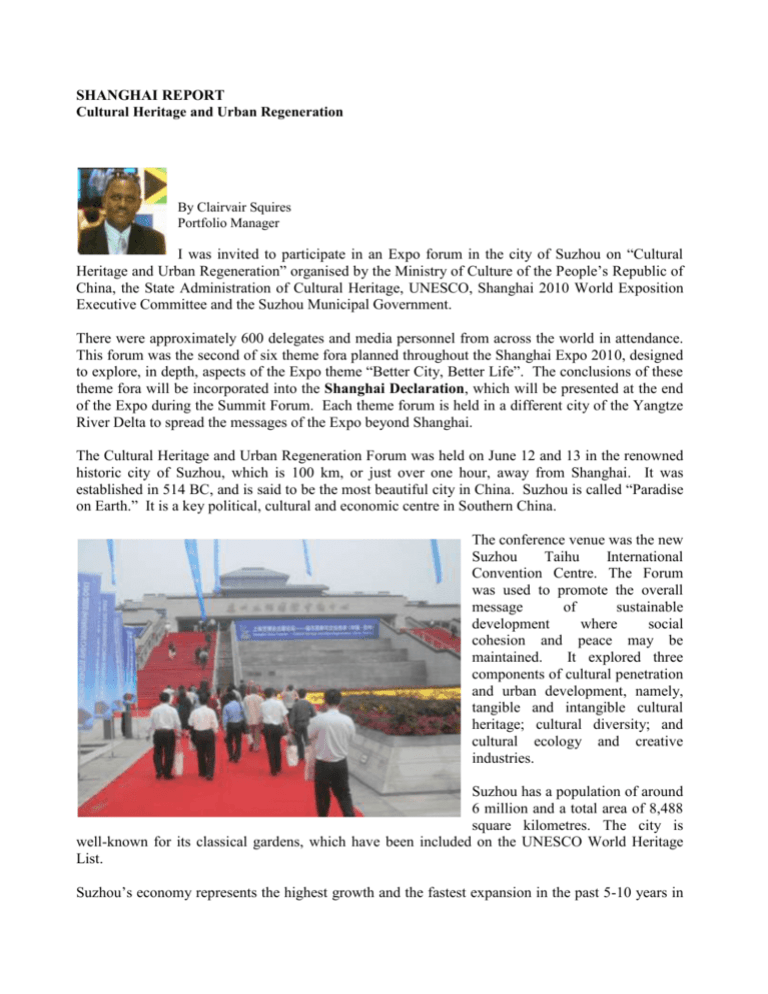
SHANGHAI REPORT Cultural Heritage and Urban Regeneration By Clairvair Squires Portfolio Manager I was invited to participate in an Expo forum in the city of Suzhou on “Cultural Heritage and Urban Regeneration” organised by the Ministry of Culture of the People’s Republic of China, the State Administration of Cultural Heritage, UNESCO, Shanghai 2010 World Exposition Executive Committee and the Suzhou Municipal Government. There were approximately 600 delegates and media personnel from across the world in attendance. This forum was the second of six theme fora planned throughout the Shanghai Expo 2010, designed to explore, in depth, aspects of the Expo theme “Better City, Better Life”. The conclusions of these theme fora will be incorporated into the Shanghai Declaration, which will be presented at the end of the Expo during the Summit Forum. Each theme forum is held in a different city of the Yangtze River Delta to spread the messages of the Expo beyond Shanghai. The Cultural Heritage and Urban Regeneration Forum was held on June 12 and 13 in the renowned historic city of Suzhou, which is 100 km, or just over one hour, away from Shanghai. It was established in 514 BC, and is said to be the most beautiful city in China. Suzhou is called “Paradise on Earth.” It is a key political, cultural and economic centre in Southern China. The conference venue was the new Suzhou Taihu International Convention Centre. The Forum was used to promote the overall message of sustainable development where social cohesion and peace may be maintained. It explored three components of cultural penetration and urban development, namely, tangible and intangible cultural heritage; cultural diversity; and cultural ecology and creative industries. Suzhou has a population of around 6 million and a total area of 8,488 square kilometres. The city is well-known for its classical gardens, which have been included on the UNESCO World Heritage List. Suzhou’s economy represents the highest growth and the fastest expansion in the past 5-10 years in China. The city’s GDP has surpassed its other neighbouring cities in the region, with the exception of Shanghai. More than 80 of the world’s top Fortune 500 have established offices in the town. This Forum drew attention to the fact that Cultural Heritage and Urban Regeneration are complementary goals in a city’s development. It was agreed that cultural diversity, integration, and the preservation and extension of cultural heritage are vital to any city and its regeneration. There was support for the thinking that cultural diversity and heritage are driving forces in development and for social cohesion. It was a well organised and executed event that brought together a wide cross section of publics. The only notable omission was representatives of NGOs and CBOs. China is indeed encouraging wide discussion and displaying significant tolerance to cultural diversity and to the media, hence the explosive development of a seemingly western style city of Shanghai. They seem serious about cultural integration but are concerned about preservation of their heritage, as they should be. The older male speakers at the Forum were more for preservation at the expense of new developments. They were more for classical books and literature and against the mass production of novels. Mr. Zhou Hanmin, Deputy Director of the World Expo 2010 Shanghai Executive Committee, summed up the Forum by saying that urban populations are outstripping rural populations. He indicated that if Cultural Heritage is forgotten, tangibles and memories would be lost. His summary was also based on the following points: We need to learn lessons and experiences of others and consolidate; both material and spiritual aspects must be considered; the cultural eco-system should be restored; culture heritage is an economic resource, but we should look for balance; cultural diversity is a basic foundation for Urban Culture Development; in order for culture to make life better, future trends should maintain cultural value; and conflicts have to be resolved. Mr. Zhou concluded by saying that the Shanghai Expo is a great opportunity for cross-cultural dialogue and debate.


